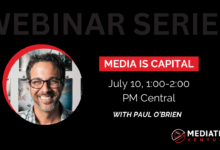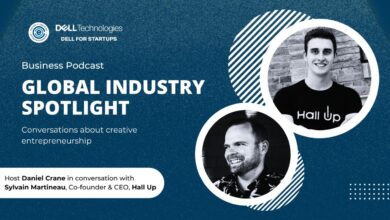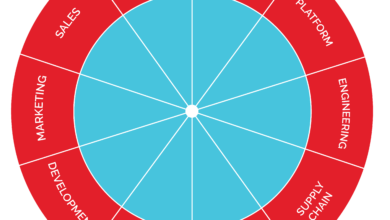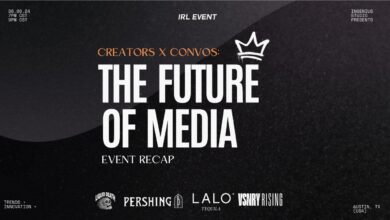The Better Way Forward

The economy of the United States is in distress. Our experiences in 2020 have exposed significant problems, accelerated movements, and forced social changes about health, society, and our experience with all things digital.
We’re faced with a global recession and record unemployment.
At this inflection point, we have an opportunity to adapt to change and to build a better future.
This week, venture capital firm Ecliptic Capital released an extensive audit and assessment of our world, with a light at the end of the tunnel; the beacon we’ve all been discussing and seeking, that “Silver Lining.”
We can Build a Better Way.
This year, in just a matter of weeks, COVID-19 has taken hold of 4.6 million confirmed cases and taken the lives of over 312,000 people.
As is typical of what leads a recession, the world understandably turned to concern for our needs, and out of appropriate focus on our most primary of needs, such as safety, made the sound decision throughout the world to stay home and stay distant. As we consumed less, gathered necessities, and vacated office buildings, restaurants, and more, markets have crashed.
Did we need to crash as much as we have?
It’s a provocative question that Christy Cardenas, Managing Partner at Ecliptic Capital, explores in their research.
Was this a crash merely the result of a virus or have we collectively created a perfect storm in which coronavirus was a catalyst that sparked, and exposed, what we’re experiencing in our economy today?
That Perfect Storm?
- An Asset Bubble
- A Debt Bubble
- Easy Money
- Political Divisions
- Global Tensions
- A Commodity Glut
Those are the present circumstances of today’s world with exceptional stock market growth, record levels of corporate debt, incredibly low lending rates, clear political and economic rifts, global shifts, and increasing supply of low cost commodities, the virus didn’t cause our circumstances, it fueled faster a race to the result of such circumstances. Notably, for example, it’s hard to ignore that this most recent of bull markets is supported by the highest level of corporate debt in history.
Cardenas notes that circumstances now look incredibly like the circumstances of the Great Depression and we couldn’t help but observe that not only are those 6 considerations as true now as then, but that the implication in Media was as clear then as now:
- Then, during the Great Depression, the movie industry was highly efficient compared to today; it controlled its own distribution (the studios each owned hundreds of movie theaters). They owned their own publicity, as the studios owned and filled many of the magazines that made actors into movie stars/box office attractions. The Great Depression caused the average American to go to the movies much more (affordable entertainment and news) resulting in the breakup of that control.
- Today? Thanks to streaming media, independent film, and the fact that that average American is now watching movies daily, at home, this virus and economic impact is causing the average American to push even more for affordable film and television.
- Then, radio stations and ever more powerful radios with better speakers and amplifiers, and extensive antenna systems to broadcast around the world, caused Americans through and from the Great Depression to stay at home and tune in. Radio airplay of music grew the demand for records, players, and concert tickets enabling musicians to thrive by touring.
- Now? “Alexa, play Lizzo,” while we all podcast our own news and narratives from our homes.
- In the 20s, advertising agencies saw a boom with new national products to advertise, radio commercials and program creation, billboards, mass circulation new magazines like Life, Look, TIME, Fortune, new national chains of retail stores, the growth in cigarettes and soft drink consumption, rising use of cosmetics (which are mostly advertising driven), etc. so Lord & Thomas, Young & Rubicam, Leo Burnett, J. Walter Thompson, N. W. Ayer, and others thrived with the top ad man Albert Lasker earning $2 million a year (in 1930’s dollars.)
- Finally today? The digital transformation that those of us online have been expecting for decades, manifesting in that every advertisement had best be digital, optimizing, measured, and omnimedia.
- The Great Depression caused professional sports teams to flourish as entertainment; baseball in particular. Horse racing/gambling, football, basketball, golf, tennis, boxing, Olympics, and college sports were all growing, changing, and drawing steadily bigger audiences both live and for radio broadcast.
- Happening again? Yes. eSports thanks to the bigger audiences of streaming, online, and gaming.
By the way, the same trend is happening again in commerce
It was then that Sears stores and mail order catalog business boomed. What’s happening now? All of that reborn as Amazon and same day delivery.
Then emerged, supermarkets (the original Big Box Store), large multi-department grocery stores that replaced independent butchers, fruit stands, bakeries, dairy stores, drug stores, kitchen stores, florists, delicatessens, toy stores, gourmet shops, and wine and beer shops. Their size and parking needs spurned the idea of shopping malls.Today, following even more aggregation in big box stores, Digital adoption and being At Home is pushing the entirety of commerce to be delivered and online from this point forward
What might that brighter future hold?
On what might it depend?
Ecliptic Capital notes that while it seems we’ve been accelerating and growing; in fact the growth of U.S. GPD compared to the rest of the world has been slowing for years as the United States is outpaced by other countries.
Why? Entrepreneurship isn’t climbing, despite the boom of incubators and accelerators in the United States, entrepreneurship, as a rate of our workforce, per capita, is falling.
The wealth gap is expanding and we can be certain that many of the jobs lost this year won’t return.
Not that brighter future I suggested, is it? The key is turning that back in the other direction.
“The entrepreneurial mind typically sucks at almost everything except for being visionary. We’re crummy at math, technology and all that stuff. What we need to do is be what we are, which is to be the one out in front. Be the one that’s chopping through the jungle and providing a path for smarter people to come behind you and develop the jungle into something useful to your market.”
Aaron Scott Young with Dr. Steve Taubman, Mastering Adversity
New Businesses Create (almost) All New Jobs
In the previous recession, 50 of our internet era’s Unicorns of today were founded and incredible companies such as Disney, EA, Microsoft, and Whatsapp, were all born of such tough times. As Laughlin Associates‘ Aaron Young noted, it’s time more of us take the risk and lead the way to new jobs.
Turning that around is an effort not unfamiliar to many of us, a focus of our own in MediaTech Ventures, illuminating why we wanted to share Ecliptic Capital’s view of A Better Way
- Education
- Technology
- Entrepreneurs
- Infrastructure
That concerted effort on those 4 things drives economic growth through new industries, new ventures, new jobs, and new founders. Our vision for the better way forward in media, applies to every industry and every sector of our economy.
And to accomplish that, together, challenges us to truly do this together, as that village that it takes to raise a child.
While we all have access to the village of government and corporate resources, service providers, schools, and expertise (particularly thanks to the connectivity of the internet), the venture capital consideration of that village remains focused on specific States driven by a local bias without merit.
With that resolved, with incredible firms such as Ecliptic Capital, the American Dream doesn’t actually change; rather, it’s finally realized, as a platform for innovation emerges to enable a nation of creators to finally flourish and thrive from throughout the country.
Take a look at their work, and let’s get the economy back on track to what it means for everyone to realize that dream of entrepreneurship and celebrated creativity.













Incredible work as usually Christy, thank YOU for the fantastic insight.
Converse to the “entrepreneurs create jobs” argument is that jobs very literally keep enterprising individuals from becoming entrepreneurs in the first place.
Paul O’Brien, that’s the kind of “big unstructured question” that George Kozmetsky and IC2 used to tackle regularly. He had the ear of politicians on both sides of the aisle. I wonder if there is any current equivalent in today’s university-government pantheon?
Very good point Rob Smithson, have talked about this at a high level with some of the IC2 Institute folks over the years. Certainly a gap remains we might all fill.
Some comments on the link:
1. I’d like to see the corp debt levels in constant dollars. Still, the correlation to % of GDP is interesting, looks like we have recessions every time it hits ~45% of GDP. One solution is to grow GDP faster than debt. Not an easy solution, but a solution nevertheless. You’re right, we need entrepreneurs for that!
2. I don’t buy the wealth gap argument. It is too easy to skew the numbers with the top handful of Gates, Bezos, Buffet, and a couple of others. If you look in more detail, ignoring that 0.01%, wealth is much more evenly spread. What I do agree with is that some of that perceived wealth gap at the gross statistical level comes from the fact that the larger monopolies need to be broken up in media (Google, Disney, for two) and perhaps in retail – is Amazon’s time coming? We’re sort of in a second Robber-Baron era, perhaps an analogy to the turn of the century is more fitting than the Great Depression? I just hope we skip the two World Wars part that came next…..
3. Completely disagree with the village analogy, even though I align with some of the points. Great enterprises never come from committees or collaborations. Gates, Musk, Ford, Billy Durant (built GM), Dell, all those people were mavericks, swimming upstream against the common wisdom of their times, and in several cases against most of the investor community (all of it, in Ford’s case), and more often than not, the government. What we need is LESS interaction with the government through streamlined rules and regulations. I had a Fortune 100 CEO tell me privately “Rob, no matter how hard your business tries, how many experts you hire, or how ethical you are, in the current regulatory environment, if the government decides they want to get you, they can find a way because the system is so complex” That was one of the most chilling things I’ve ever heard. To paraphrase The Joker, “This town (government – all of it) needs an enema!”
Now there is certainly room for public-private partnerships, and Kozmetsky was a big an advocate as there was for that, but the forms he envisioned centered around support of big science , basic R&D, and SBIR-like programs that produced innovations usable by both entrepreneurs and industry. We’ve made progress in some areas there, but have clearly backslid in others.
Paul O’Brien the difference now and then is Dr K. He could get things done that all the smart people there now can’t, for all their talent, thanks to his unique combination of intelligence, connections, and wealth. Recruit Elon Musk to run it, and you might have something again.
Indeed, a shift is on the horizon.
Rob Smithson you aren’t quite hitting our suggestion with respect to collaboration. We are not suggesting a giant committee! With respect to public private partnerships you actually hit what we were suggesting. Funding of basic research, pushing scientific boundaries at the national labs, SIBR like programs etc.
I love that this report leads with Maslow’s hierarchy. My college degree is in education and I actually taught for 7 years before transitioning to business. I’ve found that having a foundation in developmental psychology (especially Maslow) has given me slightly different lenses to look at business and overall economics than most do. If you understand Maslow, our current economic and political landscape make perfect sense. Take billionaire philanthropy from the gilded age. Carnegie’s steel employees worked 12 hour days, 7 days a week, and with far too little protective gear for the dangerous work. To make up for the bad press, he built free libraries all over the country so anyone had access to better theirselves. You know, except for his workers and anyone else who worked so much and made so little that their sole focus never moved past “not dying.” (TBC…)
But public education?! Funny how our schools don’t go too much past school house rock regarding how government works, and how money or our economy works is definitely not on the test. And then you have the boomers, or what I call “the sedate generation.” I realized this one day when talking to my dad about bitcoin. So, my dad makes a bigger salary than i’ll likely ever make, and has worked at the same company for nearly 30 years. He mentioned something about bitcoin not being backed by anything, and I was like, “Dad. Neither is the dollar. We’ve been off the gold standard since 71′.” His response? “Oh.” Thats when I had my second revelation, which is – if nothing is wrong you don’t look for answers. It all makes sense. People with knowledge and power who don’t abuse it have to consciously make that decision. Since the vast majority of people lack the education to understand nuanced policy decisions, we get politicians who either exploit us or campaign with things like “medicare for all” because the solutions that could work can’t be described with a 3 word slogan. This is why we can’t have nice things. *pick up pillow, insert face*
Great piece ?
Thanks Jesse Guglielmo, Christy Cardenas did incredible work. Wonderful seeing a way forward that reflects so much of our own vision.
Very cool and well done Christy! Constructive efforts like these are the light at the end of the tunnel. One day at a time…we will get there while protecting the sanctity of positive change and creativity.
Looking forward to learning more. Happy to see entrepreneurs front and center. Thanks for sharing!
I think we’re on version 3.412
Hi Rob Smithson it is very nice to meet you online! Thank you for your feedback and I’d note, we certainly agree with the need to streamline the government, along with the need for public private partnership focused in science and university. It all fits together — the need for a more efficient government is driving our societal need for digital economic infrastructure, driven by public private partnership and focused around the universities (as you note, Kozmetsky agrees!).
The best thing for entrepreneurs would be universal healthcare
eh… not that I disagree, more that the first step to “universal healthcare” working well in the U.S. has to be breaking the stranglehold that Insurance has on the market. The problem isn’t that people really don’t want it… and the issue isn’t as simply as passing it… it’s that U.S. healthcare is stupidly expensive because of how the insurance industry works; it’s just not sustainable.
I dropped all insurance and ACA when I found a way to get critical care coverage only; dropped my total annual bill by about $10,000 (paying direct, and less, for most things). Disturbing that it’s even possible to pay less for care simply by not being formally insured. That all needs to change before anything universal will work.
I’ll let you know after a big pitch today 😉
Does that mean that NOW you’ll consider investing in a future form of self-expression – an entirely new DIY Creator platform that teaches anyone AI Authoring?
Most notably in the shift to decentralized supply chains we are witnessing first-hand. I’ve received 20-30 invites to like business pages started by friends and family. That’s just personal experience.
At a higher level overview, Blockchain networks are creating opportunity for people around the world to take hold of their data, resources, and equipment for good.
Exchange opportunities created for the middle and lower class are highly underrated right now and flying under the radar if you consider the general population.
We may see a shift happen with the general population if small businesses adopt cutting edge tools and multiple supply chain methodologies.
We’re seeing this real world shift in the enterprise world where banks and other financial institutions (or well institutionalized organizations who can afford the research, engineering, and equipment) in their respective sectors adopt blockchain tools and talent. Most recently, the temporary assignment of Coinbase’s former lawyer to act as a US bank regulator (acting OCC).
We will see this shift propagate in areas where currency holds no more value and now in first world countries where decentralizing supply chains is starting to become not only advantageous for entrepreneurs but more so for customers who want more control of their purchase. This purchase is now more than ever influenced by conscious buys (impact consciousness) and by risk assessment (less exposure to the mass population i.e Covid-19).
Essentially, decentralization in tools and methodology is exhibited in many forms.
My startup teams (plural) hope to address this opportunity with our re-launch this summer (been operating in incognito for 5-7 years testing and researching different direct marketing/gorilla tactics). Happy to discuss details if you’re curious to find out more.
We haven’t publicized much but we’ve been lurking and we’ve been watching. The people and enterprises are starting to show they are ready without knowing this. It begins with small businesses now. Thjs is why I agree and back your data driven assessment alongside my anecdotal ears-to-the-ground approach ??
(If there are typos I’ll come back to fix them ?)
Omar A Morales great points. It’s fascinating to watch how aggressively governments are acting to retain some control… net neutrality, attacking social media, privacy and security regulation, etc. I don’t think people appreciate/realize that that isn’t government looking out for us, that’s government reacting like a cornered animal, knowing it’s caught in a corner with nothing but teeth and claws to lash out.
Paul O’Brien
Could not have said it better myself! Luckily, decentralization is exactly THAT! ?
How many of these arguments had some truth to them? Interesting to watch this time and time again as we witness fluctuations in crypto and shake ups in the many supply chain worlds.
https://youtu.be/q8R71WGO3qU
My question is what does “village-like approach” all entail? Entrepreneurship is most successful without significant interference from government or corporate entities requiring a portion. In healthcare, there is far too much interference, gatekeepers, and middlemen, causing greater costs with worse medical care.
Great question Clifford Porter. My take? FWIW
Too many Americans are fixated on Government being either the solution OR the problem. It’s not black or white.
As for successful entrepreneurship, I agree with you entirely; government creates more hurdles for startups than help. HOWEVER, we’re talking ecosystem and economy here… we too easily overlook that it was Government R&D that spawned the internet, it’s Government Grants and provide small businesses some capital, etc. I’d love to see massive deregulation or early stage so that entrepreneurs aren’t burdened by the hassles of governance, when trying. But I also appreciate that economically (whether we like it or not), Government influences education, R&D, workforce development, and even promotion of business. Many may feel “better without” but “without” isn’t an option; so it’s time we start correcting all that’s wrong about what it has been.
As for healthcare, 100%
I know more about it all than I’d like (my family is in healthcare though I’m not); my holiday dinner discussions tend to be about that industry because they have little idea of what I do LOL
Concur on deregulation. Although an ounce of prevention is better than a pound of cure, the regulatory environment is often a ton of prevention where a pound of cure would be just fine.
Great article!
Thank you Rob Smithson for bringing the ideas and values of George Kometsky to this discussion.
I couldn’t agree more! These are my sentiments exactly!
Jimmy McClure think there is much to this in your part of the world in particularly, and then in thinking more broadly about regions (all of Texas / Gulf Coast, etc.)
We are building a biz incubator on the island as we speak and are mapping these resources for common use and will provide in house what is appropriate and connect to others like Ecliptic Capital where possible. Below is a 3D rendering of the site in Galveston. We are shooting for a September open.
Jimmy McClure I’m in need of a week or so at the beach….
Seriously though, perhaps we should talk about what MediaTech Ventures is doing. cc John Zozzaro
Paul O’Brien I’d love that. PM me and let’s do it